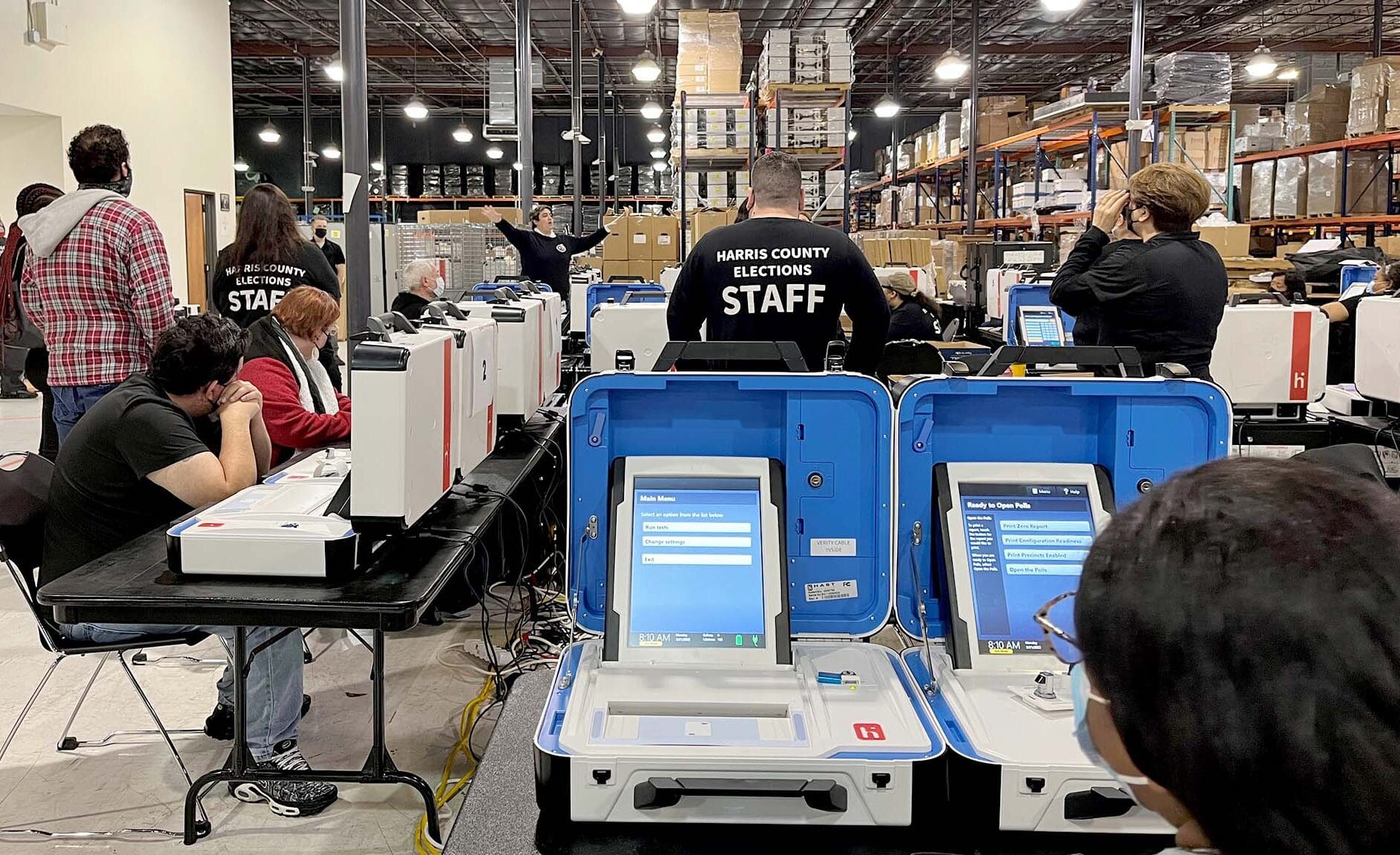Ahead of a legislative hearing Monday to evaluate the Texas Secretary of State’s election audit program findings, Secretary Jane Nelson released Election Audit Reports for the 2021-22 election cycle.
The reports released Friday evening cover four counties: Harris, Cameron, Guadalupe, and Eastland.
Senate Bill 1, enacted in September 2021, requires the SOS to conduct biennial election audits in four randomly drawn counties—two large (population of 300,000 or more) and two small (population of less than 300,000).
The current audits reviewed the first elections following the implementation of SB 1, which also mandated many new election procedures.
Most of the persistent problems were identified in Harris County, which accounts for about 15 percent of the state’s registered voters.
However, in 2023 Harris County election duties were returned to elected officials, following passage of Senate Bill 1750 that eliminated the appointed elections administrator’s office.
Despite improvements in election administration under Harris County Clerk Tenesha Hudspeth, Nelson stated that “an enhanced presence by the Secretary’s office is necessary for the November 2024 election.”
Nelson advised that the SOS will assign state inspectors to monitor election operations and provide Elections Division staff to “assist Harris County for the duration of the election period from early voting, to Election Day, and through tabulation.”
Key audit findings for each county:
- In defiance of state law, Harris County Elections Administrator Clifford Tatum failed to estimate and issue the required amount of ballot paper to polling places in the November 2022 General Election, resulting in felony charges against one of Tatum’s subordinates.
- After Harris County transitioned from a paperless to paper-based voting system in 2021, Elections Administrator Isabel Longoria failed to require hands-on training for election workers to operate the new equipment, resulting in widespread equipment failures in multiple elections.
- County elections administrators neglected to follow state law for voter roll maintenance and failed to keep an accurate list of registered voters in their county records; this issue has since been addressed and corrected.
- In numerous elections, required paperwork from polling locations was incomplete and failed to meet the requirements outlined by law.
- Cameron County election officials developed a strong election worker training program that includes legal and procedural instruction and hands-on training with all election equipment.
- The county did not report appropriate information to the state for rejected mail ballot applications in 2022, a new requirement, but is now in compliance.
- Guadalupe County elections staff routinely conduct post-election assessments of all processes and procedures and address self-identified areas of needed improvement.
- Elections officials developed detailed policies and procedures manual for all assigned functions, as well as a Citizens Election Academy.
- Eastland County election officials have improved processes and procedures with each election, including chain of custody forms for tracking election technology and supplies.
- The county training program should include more detailed instructions and written documentation for presiding judges.
During Monday’s House Elections Committee interim hearing, SOS Elections Director Christina Adkins reviewed the audit results with lawmakers.
Most of the discussion focused on Harris County.
Adkins told Elections Committee members that she wasn’t aware of any similar complaints or issues, since the county clerk has taken back election administration. She said Hudspeth’s office has worked cooperatively with the Elections Division without the state invoking Senate Bill 1933, allowing the SOS to oversee Harris County elections if there is a “recurring pattern of problems.”
Adkins added that county officials have told her office the process of being audited has helped them improve how they administer their elections.
Lt. Gov. Dan Patrick meanwhile slammed House Speaker Dade Phelan for killing 23 “critical” election integrity bills passed by the state Senate.
“As I have mentioned several times, many key bills regarding voter integrity and elections passed the Texas Senate only to be killed in the Texas House under the leadership of Speaker Dade Phelan. Most never even received a hearing in committee,” said Patrick.
“The Texas Senate passed 23 election-related bills that did not pass the House. These bills would have been a step toward restoring the public’s confidence in fair and honest elections in the State of Texas. It’s an absolute disgrace that Speaker Phelan killed these critical bills.”
The next four counties selected for audit following the 2023-24 election cycle are Brazoria, Bell, Real, and Val Verde.





